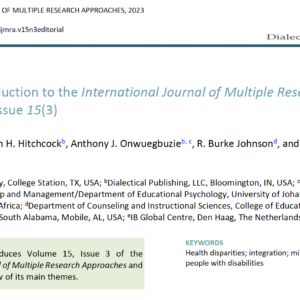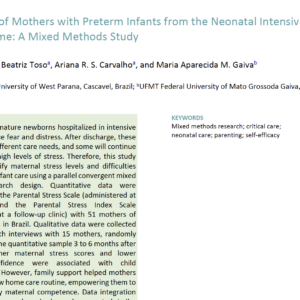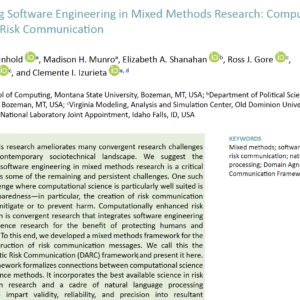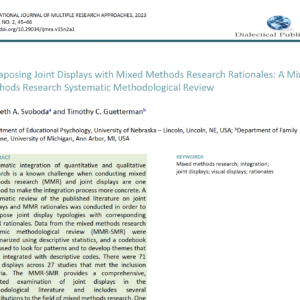15(3). 02. Process for Developing an Inclusive Behavioral Health Survey with Blind and Low Vision Adults
$30.00
Description
Authors
Nazanin M. Heydarian(a), Allyson S. Hughes(b), Osvaldo F. Morera(c), Ashley S. Bangert(c), Carmel H. Heydarian(d), Yessenia Castro(e), and Scott D. Frankowski(a)
(a) The University of Texas Rio Grande Valley, Edinburg, TX, USA; (b) Ohio University, Athens, OH, USA; (c) The University of Texas at El Paso, El Paso, TX, USA; (d) Independent, El Paso, TX, USA; (e) University of Texas at Austin, Austin, TX, USA
Abstract
One in six individuals in the world are disabled; yet, modern survey science lacks a framework of inclusion for individuals with disabilities. For this reason, the behavioral health knowledge base is limited in generalizability and exacerbates health disparities. The purpose of this article is to report the iterative and community-engaged process underwent to facilitate an accessible research participation experience for Blind or low vision (BLV) participants. The authors highlight tips for engaging the community learned throughout the project. Pilot research, focus group discussions (Study 1), and a survey (Study 2) engaged BLV adults and solicited their feedback on the format and accessibility of the research procedures of a healthcare quality scale development project. The focus group discussion participants reported benefits from participation, including enjoyment from participation and knowledge sharing. The survey participants commented on the degree that study measures reflected community members’ experiences and provided feedback on study materials and format. Methods from our studies easily can be adopted into most research designs, can increase the participation of disabled persons, can improve validity and generalizability, and can reduce health disparities.




